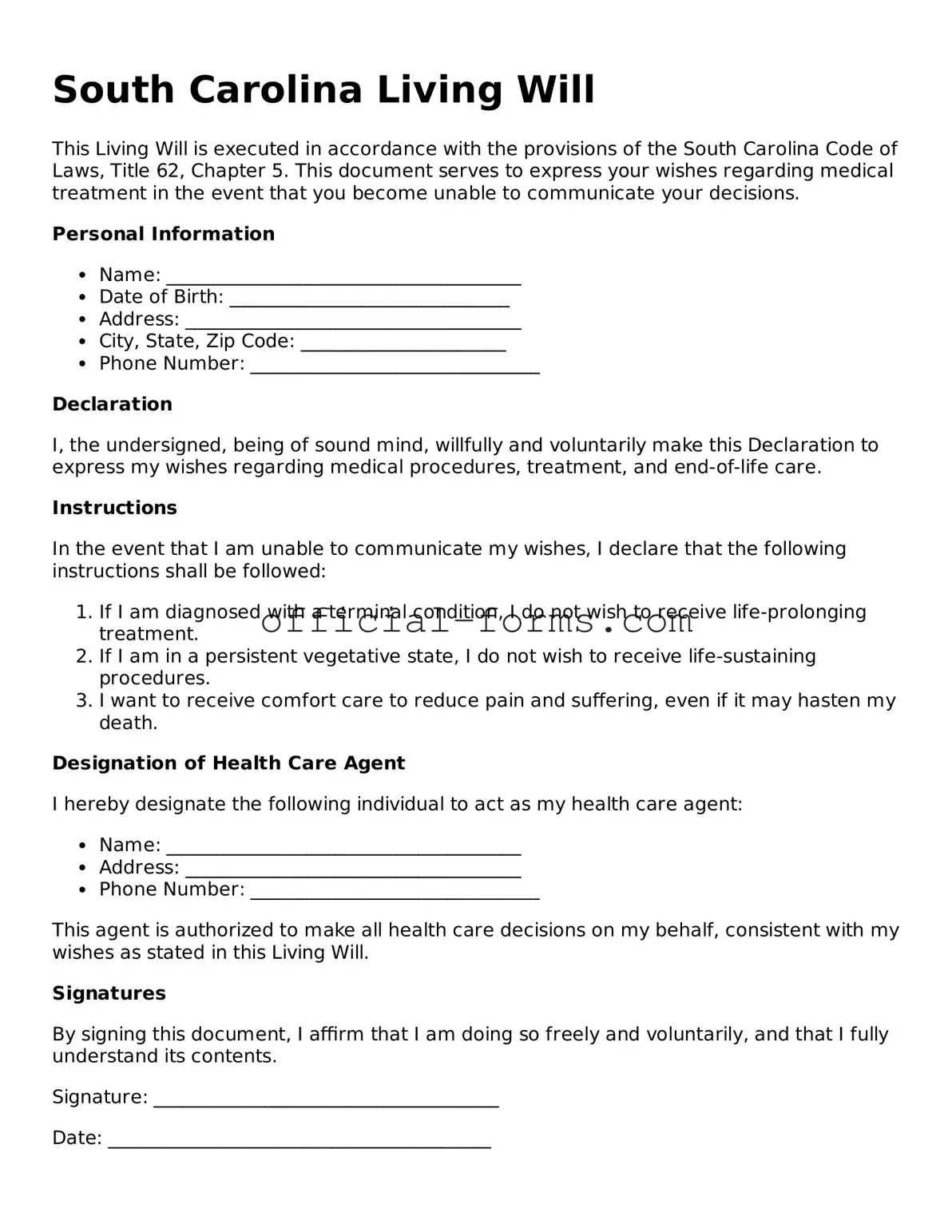Completing a South Carolina Living Will form is an important step in ensuring that one's healthcare wishes are respected. However, many individuals make common mistakes during this process that can lead to confusion or even disputes later on. Understanding these pitfalls can help individuals create a more effective document.
One frequent mistake is failing to clearly define the circumstances under which the Living Will should take effect. Without specific guidelines, healthcare providers may struggle to interpret the individual's wishes. It is crucial to articulate the conditions that would trigger the directives outlined in the form.
Another common error is neglecting to sign the document in the presence of witnesses. South Carolina law requires that a Living Will be signed by the individual and witnessed by two individuals who are not related to the individual and who will not benefit from the estate. Failing to meet these requirements can render the document invalid.
Additionally, individuals sometimes overlook the importance of updating their Living Will. Life circumstances change, and so may one’s preferences regarding medical treatment. Regularly reviewing and revising the document ensures that it accurately reflects current wishes.
Some people also make the mistake of not discussing their Living Will with family members or healthcare providers. Open communication can prevent misunderstandings and ensure that loved ones are aware of the individual’s preferences. This dialogue can be crucial during difficult times.
Moreover, individuals may forget to include specific instructions regarding organ donation or other medical procedures. Omitting these details can lead to uncertainty and may not align with the individual’s desires. Clear instructions can provide peace of mind to both the individual and their family.
Another mistake involves using vague language. Phrases that lack clarity can lead to different interpretations. It is essential to be as specific as possible to avoid ambiguity in the directives provided.
Some individuals may also fail to consider appointing a healthcare proxy. While a Living Will outlines medical preferences, a proxy can make decisions on behalf of the individual if they are unable to communicate. This added layer of support can be invaluable in ensuring that wishes are honored.
Finally, neglecting to keep copies of the Living Will in accessible locations can create unnecessary complications. It is advisable to share copies with family members, healthcare providers, and legal representatives. This ensures that the document can be easily retrieved when needed.
By avoiding these common mistakes, individuals can create a Living Will that accurately reflects their healthcare wishes, providing clarity and peace of mind for themselves and their loved ones.

